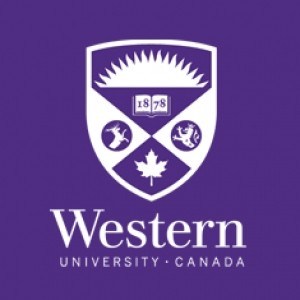Photos of university / #westernuniversity
Our faculty include award-winning, internationally renowned scholars in Social Inequality, Aging & Health, and Population Studies. We also have research expertise in areas such as youth and identity, criminology, and work. Furthermore, we are home to the Centre for Population, Aging and Health. We are active participants in the collaborative inter-disciplinary graduate programs in Migration & Ethnic Relations and Transitional Justice & Post-Conflict Reconstruction. Moreover, our researchers benefit from the Research Data Centre housed at Western and one of the top academic libraries in the country.
Upon completion, our graduates work in a variety of academic institutions, government agencies and private businesses around the world. The department houses a graduate student computer lab, office space, classrooms, research space and a lounge. With all of these facilities located on the fifth floor of the Social Science Centre, our students enjoy an inclusive environment and easy access to faculty members and facilities.
- Four required courses: Sociology 9002 (Classical Sociological Theory), Sociology 9003 (Quantitative Research Methods), Sociology 9005 (Contemporary Social Theory), and Sociology 9007 (Multivariate Statistical Analysis).
- PLUS a minimum of four additional courses beyond the theory and methods requirements, at least two of which will be related to the student's two chosen areas of specialization. Students are required to complete at least one course in each chosen area of specialization before writing a comprehensive exam in that area (subject to availability). It should be noted that specific courses can often serve for more than one area of specialization. Students must consult the graduate chair to make a final determination of the requirements.
- Students normally take 3 courses each term (Fall, Winter).
- Students may take up to two courses from other departments. Students in collaborative programs should consult the respective web pages to determine required courses for the specialization (see side bar for links).
- In exceptional circumstances, permission to take a reading course may be granted at the discretion of the graduate chair. Exceptional circumstances may include that there is no course being offered in the student's area of study (broadly, rather than narrowly considered) in a given year (not a given term) or that a student wishes to take additional courses beyond those that are required. Normally, students will be permitted to take a maximum of one reading course.
- Note: A candidate’s course load may be reduced (by a maximum of two) in a case where 9002, 9003, 9005, 9007 or equivalent has been taken previously. For example, a student who has taken one of these courses (or its equivalent) previously may have the required number of courses reduced to a minimum of seven; a student who has taken two of these courses (or its equivalent) previously may have the required number of courses reduced to a minimum of six
- Research apprenticeship
- Thesis proposal
- Two comprehensive exams
- PhD professional seminar
- Dissertation
- Candidates are required to pass two comprehensive examinations, normally within the first two years of study. Comprehensive examinations require students to demonstrate a broad understanding of the literature and debates within two substantive areas. The comprehensive examination process provides students with the opportunity to immerse themselves in literatures that will inform their dissertation work.
Comprehensive exams may be written in the following 5 core areas
- Aging and the Life Course
- Health and Health Inequality
- Inequality, Power, and Social Regulation
- Social Demography
- Work, Occupations, and Professions
Comprehensive exams may also be written in
- Migration and Ethnic Relations (for students enrolled in the MER Collaborative Program)
- Transitional Justice and Post-Conflict Reconstruction (for students enrolled in the TJ Collaborative Program)
- Sociological Theory
- Quantitative Methods and Statistics
- Qualitative Methods
Requirements
- Admission to the PhD program requires an overall average of at least 78% (B+) in graduate level courses. Applicants who have taken sociological theory, statistics and methods are preferred.
- In the case of an outstanding student with an Honours degree in Sociology, the student may be admitted into the PhD program after completion of the MA coursework. In these exceptional cases students would proceed immediately to the PhD program without obtaining an MA degree.
- The required level of proficiency can best be demonstrated by TOEFL (Test of English as a Foreign Language), which must have been administered within the last two years. Acceptable proof is an Official Examiner's Score submitted directly by ETS (the Educational Testing Service). Application forms for the TOEFL may be obtained online. A score of at least 625 (paper-based) or 263 (computer-based) or 107 (Internet-based) is required for admission. Western's TOEFL ID is 0984.
- The minimum IELTS (International English Language Testing Service) score, if submitted in lieu of TOEFL, is 8.
- Academic background
- Referee information - two academic references are required. For additional information, see FAQs.
- Transcripts (upload digital academic record into the application)
- Statement of academic interests and research plans (upload into the application). Statement (approximately 500-1000 words in length) outlining academic interests related to graduate work in sociology and research plans.
- A writing sample is required for all PhD applicants (e.g. term paper, excerpt from MA thesis), maximum 20 double-spaced pages (upload into the application)
- Cover letter (optional) offering additional information or clarification of application items (upload into the application)
- Application fee
Scholarships
- Funding package
- The Ellen Nilsen Award of Excellence
The Sociology program at Western University offers students an in-depth exploration of social behavior, institutions, and structures. Designed to provide a comprehensive understanding of societal dynamics, this undergraduate program prepares students for diverse careers in research, government, non-profit organizations, and private sectors. The curriculum encompasses core topics such as social theory, social research methods, race and ethnicity, gender studies, social inequality, urban sociology, and globalization. Students are encouraged to critically analyze social issues and develop skills in qualitative and quantitative research methodologies. The program emphasizes experiential learning through fieldwork, internships, and research projects, allowing students to apply theoretical knowledge to real-world scenarios. Western University’s Sociology department is renowned for its distinguished faculty, who are actively engaged in cutting-edge research on contemporary social issues. Networking opportunities are available through seminars, guest lectures, and academic conferences, facilitating interactions with professionals and academics. The program also offers specialization options, enabling students to focus on areas such as criminology, social policy, or health sociology, tailoring their degree to align with career aspirations. Graduates of the program have gone on to pursue advanced studies or enter sectors like social services, community development, public policy, or academic research. The university supports student success through academic advising, career services, and access to a vibrant campus life, fostering a comprehensive educational experience. Overall, Western University’s Sociology program combines rigorous academic coursework with practical experiences, equipping students with critical thinking skills and social awareness essential for addressing complex societal challenges today.




